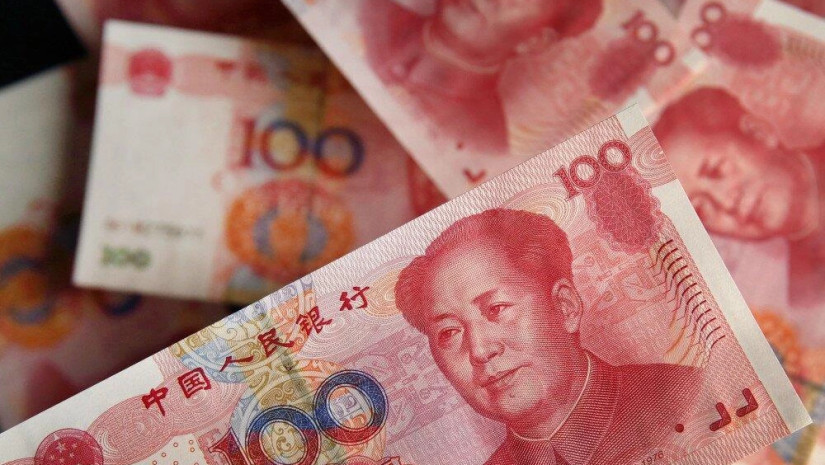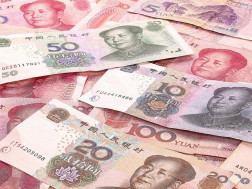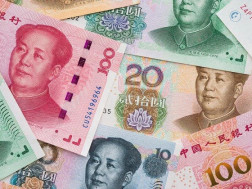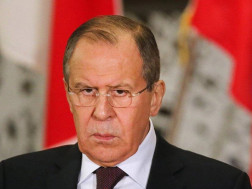Chinese banks are ramping up efforts to promote international use of the yuan, and reporting a surge in cross-border yuan business from the country’s booming trade with Russia and deepening ties with the Middle East.
Harbin Bank Co, in China’s Heilongjiang province neighboring Russia, saw its cross-border yuan business grow nine-fold last year to a record, as the Sino-Russia trade grew briskly after the Ukraine war began.
China Construction Bank and Agricultural Bank of China (AgBank) reported total assets at their Moscow subsidiaries jumped 3.3 times and 1.4 times, respectively, in 2022, while Russia was put under harsh western sanctions.
Admittedly the growth came off a low base, but these small steps in yuan adoption come after a string of bilateral deals by China with its trade partners, such as its oil purchases from the Gulf and other trade with Brazil and Russia.
The yuan’s share of global payments is merely 2.5 percent, and tiny compared with US dollar’s 39.4 percent and euro’s 35.8 percent, according to SWIFT, the global payment messaging system controlled by the West.
But Reuters analysis of banks’ latest filings shows how the one-year-old Ukraine war that led to Russia being kicked out of the dollar system, is revving up China’s efforts to extend the plumbing for an alternative currency system.
“China should prepare for the worst-case scenario of being excluded from SWIFT, and actively promote cross-border use of the yuan,” Wang Jiehua and Qiao Liqun, executives at Harbin Bank, wrote recently in a publication affiliated to China’s central bank.
China should use the opportunities brought about by western sanctions against Moscow to expand trade with Russia, and make Heilongjiang a beachhead for yuan internationalization, they wrote.
In Inner Mongolia, also neighboring Russia, Bank of Inner Mongolia has been actively engaged in yuan settlements and trade financing businesses with its Russian peers, facilitating bilateral trades, official Xinhua news agency reported in March.
Even Chinese banks with modest Russian business, such as Bank of Jiujiang and Postal Savings Bank of China, said their cross-border yuan settlements more than doubled as Beijing pushed for global use of the yuan currency. AgBank’s yuan clearing business jumped 157 percent last year in Dubai.
CIPS vs. SWIFT
Harbin Bank, which in 2015 partnered with Sberbank of Russia to establish a platform for Sino-Russian financial cooperation, last year launched a department dedicated to promoting cross-border business with Russia.
It also vowed to promote the Cross-border Interbank Payment System (CIPS) - China’s answer to SWIFT - seeking to be “a major force” in the development of yuan business and CIPS in the Russian market.
Industrial Bank Co, whose cross-border, corporate payment business jumped 50 percent last year, has also been actively promoting CIPS, China’s own global payment system.
The bank said it currently helps 153 foreign and Chinese banks connect to CIPS, to advance China’s yuan internationalization strategy.
In the Republic of Tajikistan, AgBank held a campaign last December to introduce CIPS, as it seeks to lay out a cross-border yuan clearing network linking China and the Central Asian country.
The efforts were captured by official data. In March, 61 participants joined CIPS as indirect participants, more than in the previous four months combined.
Bank of China, which is the biggest facilitator of CIPS in terms of market share, published an ambitious agenda last month for yuan internationalization.
The bank, whose cross-border yuan settlement grew 26.1 percent last year to 31.1 trillion yuan ($4.50 trillion), vowed to support China’s state-owned companies, commodity traders, and engineering contractors in using yuan for settlement and financing.
Another state bank, the Bank of Communications (BoCom), said it facilitated China’s first yuan-settled trade of Liquid Natural Gas (LNG).
“China has big influence on the demand for oil and gas,” China’s fifth biggest bank said in a statement this week, after it helped CNOOC and Frances’s TotalEnergies complete the milestone LNG deal.
“Increasing the use of yuan in pricing, and settling cross-border oil and gas trade will give a boost to yuan internationalization,” Al Arabiya reports.
















